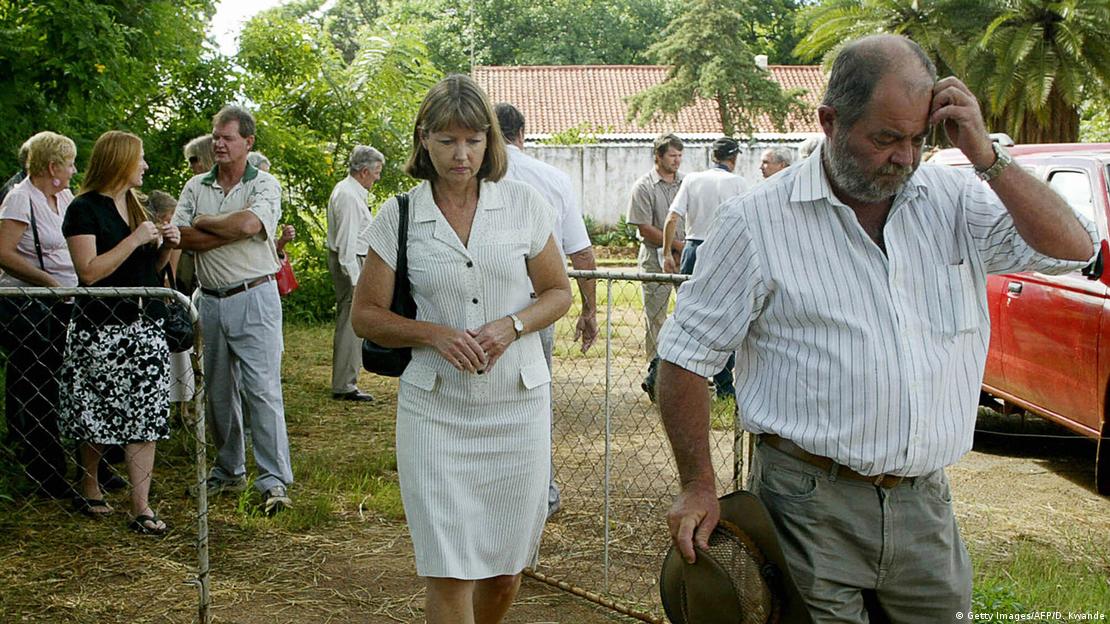Former Zimbabwean farmers who lost their farms will not be able to sue the South African government for compensation, after the Constitutional Court yesterday (Monday) ruled against them on a technical point.
The apex court found that the claim for damages the farmers wanted to be paid for had lapsed, as they did not timeously serve their notice regarding their legal action on certain organs of state.
Government had turned to the Constitutional Court on appeal regarding this and another technical point in law. The Gauteng High Court, Pretoria, earlier ruled against the farmers on one of the points and on appeal, the Supreme Court of Appeal ruled in favour of the farmers.
But this time around the Constitutional Court ruled in favour of government that the farmer’s claims had prescribed, which then precluded the farmers from going ahead with their main damages application.
The farmers intended to cumulatively claim about R2 billion from the South African government after then-president Jacob Zuma signed a SADC resolution in 2014 that removed its tribunal’s powers over member states.
The matter has its genesis in Zimbabwe’s controversial land redistribution programme. Land owned or farmed were taken away from the farmers without compensation under the programme.
A constitutional amendment in Zimbabwe precluded them from seeking legal redress there. Thus, they turned to the South African courts to hold government responsible for their losses.
Government held preliminary points against the damages claims, which included that the farmers did not serve their notices regarding the court action on certain organs of the state in time.
The litigation has a long history, as the parties up to now have battled the preliminary points, which stood in the way of the farmers to continue with their main damages application.
One of Government’s preliminary points was that there was no causal link between the damage suffered by the Zimbabwean farmers due to South Africa’s participation in the termination of the SADC tribunal’s activities, and the actual harm suffered by the farmers.
The Supreme Court subsequently ruled in favour of the farmers on one of the technical points, with the Government then turning to the ConCourt to appeal the ruling.
In a concurring judgment, written by Judge Owen Rodgers, the ConCourt concluded that the debts as claimed by the farmers, had prescribed. He said in light of this finding, there was no need for the court to decide on the other preliminary point.
AfriForum, which assisted the farmers in their legal bid, meanwhile said this judgment was not the end of the road for the Zimbabwean farmers.
It is already considering several follow-up cases to ensure just and equitable compensation for victims, not only South African citizens, but also Zimbabweans.

Courts in Europe and the USA recently awarded compensation and legal costs against the government of Zimbabwe, setting precedents in international law and leaving Zimbabwean state assets vulnerable to seizure.
AfriForum said yesterday’s judgement was solely based on a legal technicality.
The organisation has supported the Zimbabwean farmers in numerous successful court cases since the damning ruling of the Southern African Development Community (SADC) Tribunal against the government of Zimbabwe in 2008.
AfrForum said that this judgment did in no way alter or soften the previous ruling by the same court in December 2018. In that ruling it was determined that the South African government acted unlawfully and irrationally when it conspired with other heads of states of SADC by taking part in the suspension of the SADC Tribunal.
The suspension of the tribunal closed the doors of justice to more than 400 million citizens of SADC countries.
President Cyril Ramaphosa had earlier complied with the Constitutional Court’s order to withdraw South Africa’s signature from the agreement to suspend the activities of the tribunal. “Yet today’s (yesterday’s) ruling leaves more than 700 South African farmers suffering heavy material losses. The ruling states that victims cannot claim damages from the South African government which they have suffered from the South African government’s irrational and unlawful behaviour, because it has prescribed,” AfriForum said.
Its legal team will study the judgement and then determine a path forward to continue the fight for property rights.
Pretoria News







